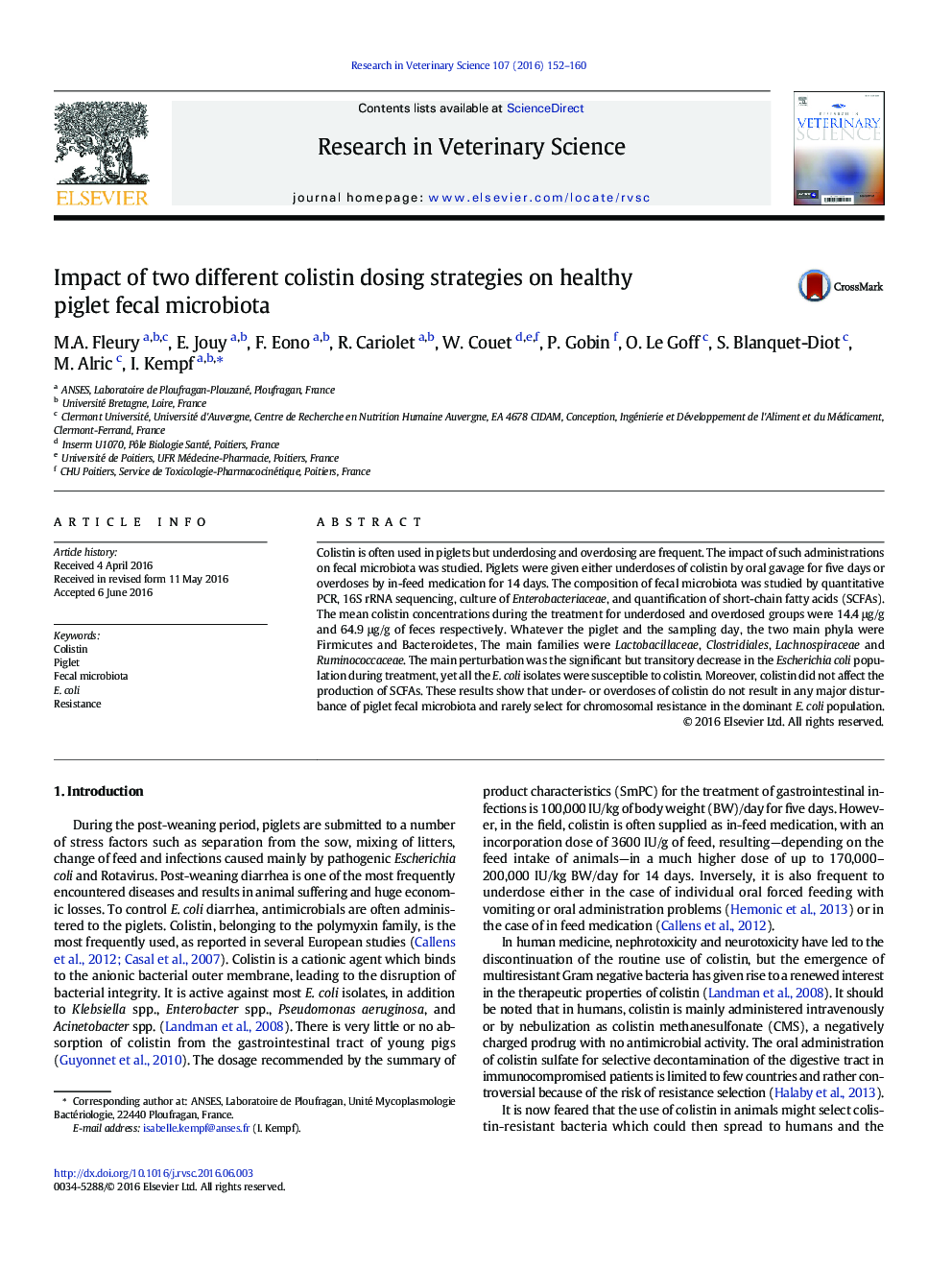| Article ID | Journal | Published Year | Pages | File Type |
|---|---|---|---|---|
| 5794422 | Research in Veterinary Science | 2016 | 9 Pages |
â¢Impact of underdosage and overdosage of colistin on pig microbiota was studied.â¢Colistin induced a significant decrease of the E. coli population during treatment.â¢Colistin did not affect the production of short-chain fatty acids.â¢No colistin-resistant E. coli could be detected after oral colistin treatment.
Colistin is often used in piglets but underdosing and overdosing are frequent. The impact of such administrations on fecal microbiota was studied. Piglets were given either underdoses of colistin by oral gavage for five days or overdoses by in-feed medication for 14 days. The composition of fecal microbiota was studied by quantitative PCR, 16S rRNA sequencing, culture of Enterobacteriaceae, and quantification of short-chain fatty acids (SCFAs). The mean colistin concentrations during the treatment for underdosed and overdosed groups were 14.4 μg/g and 64.9 μg/g of feces respectively. Whatever the piglet and the sampling day, the two main phyla were Firmicutes and Bacteroidetes, The main families were Lactobacillaceae, Clostridiales, Lachnospiraceae and Ruminococcaceae. The main perturbation was the significant but transitory decrease in the Escherichia coli population during treatment, yet all the E. coli isolates were susceptible to colistin. Moreover, colistin did not affect the production of SCFAs. These results show that under- or overdoses of colistin do not result in any major disturbance of piglet fecal microbiota and rarely select for chromosomal resistance in the dominant E. coli population.
